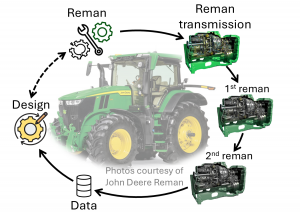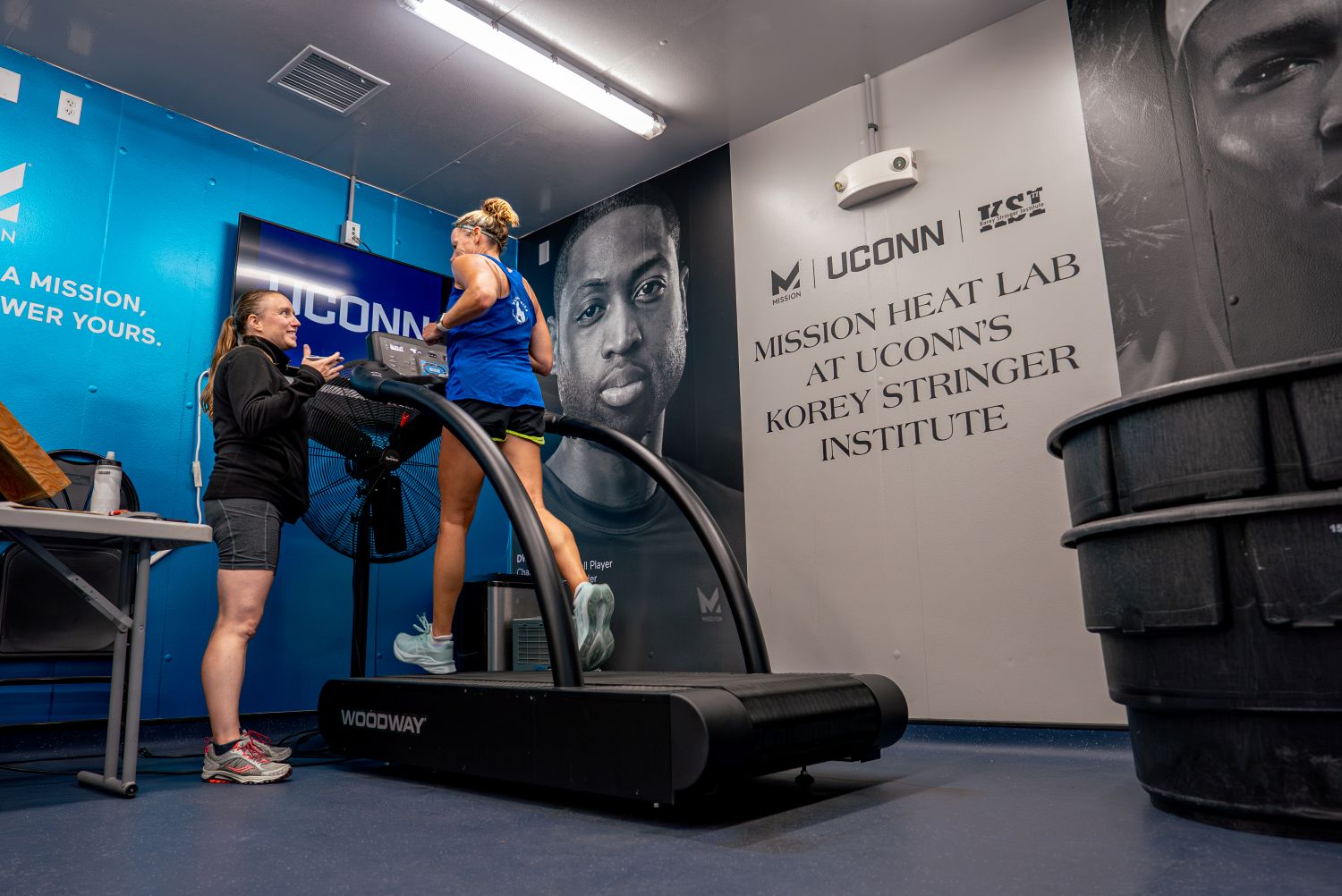First-year Ph.D. students Mohammad Mundiwala and Aidan Lawlor from UConn’s Reliability Engineering and Informatics Laboratory (REIL), advised by Chao Hu, an associate professor in the School of Mechanical, Aerospace, and Manufacturing Engineering, within the College of Engineering, are helping manufacturers rethink product design to extend the life of critical components and reduce environmental impacts.

Their work, showcased at the 2025 Annual Member Meeting of the U.S. Department of Energy-supported REMADE Institute in Washington, D.C., illustrates how smart design choices can drive the circular economy.
“I feel lucky to have worked on this project and to have closely collaborated with experts in this field,” says Lawlor. “Their insights were instrumental in shaping our work to be directly applicable in industry.”
The team is collaborating with researchers from the University of Dayton, the University of Illinois Urbana-Champaign, and Mississippi State University to develop a data-driven software tool that helps manufacturers evaluate how design changes affect remanufacturing.
REIL excels in applying statistics and cutting-edge algorithms to improve the reliability and sustainability of complex engineered products.
The tool forecasts how design improvement options influence cost, energy consumption, and greenhouse gas emissions across a product’s life cycle, with a unique focus on cost savings over multiple remanufacturing cycles.
By simulating different design options, manufacturers can identify small but meaningful changes – such as adding threaded inserts or extra materials for re-machining – that make parts easier and less costly to remanufacture. This approach not only lowers production expenses, but also supports a more sustainable, resource-efficient future.

The UConn team put their tool to the test with a case study on a John Deere transmission, working alongside John Deere remanufacturing and design experts Matthew Davied, Mike Lee, and Todd Thompson. Their insights ensured that the analysis reflected real-world challenges and opportunities.
The study revealed that minor upfront design adjustments can significantly increase the number of remanufacturable drivetrain parts, reducing the need for virgin materials and energy-intensive processes.
These findings demonstrate how manufacturers and consumers alike can benefit from products built with remanufacturing – lowering costs and minimizing environmental impacts.
The partnership with John Deere experts helped the team guide their research by highlighting opportunities for new academic solutions, bridging the gap between academia and industry through real-world case studies.
“It was exciting to contribute to the development of a tool that will help us evaluate the long-term cost implications of design decisions across multiple remanufacturing cycles,” says Davied. “The UConn team brought valuable insight and technical expertise to the project, their determination to overcome every challenge they faced resulted in what I believe is a highly successful tool – one with the potential to benefit the industry well into the future.”
Remanufacturing is a critical pillar of the circular economy, restoring worn components to “like-new” condition, reducing energy and materials.
“Our focus on sustainable design in remanufacturing,” says Mundiwala, “is a meaningful step toward achieving a circular economy.”

Mundiwala and Lawlor’s work contributes to the REMADE Institute’s mission of making U.S. manufacturing more sustainable and resource efficient. With more than 60 active REMADE projects nationwide, this project stands out as a model of how academia, industry, and government can collaborate to meet ambitious sustainability goals.
Their work on this project with ZF Group, led by Gül Kremer, Dean of Engineering at the University of Dayton, helped confirm that the tool they developed is applicable across different industry sectors. This work earned the team the Paper of Distinction Award at the ASME 30th Design for Manufacturing and the Life Cycle (DFMLC) Conference, one of the most influential conferences in the sustainable design field.
“It’s rewarding to see our work on sustainable design making an immediate impact for remanufacturing practitioners,” says Hu.



